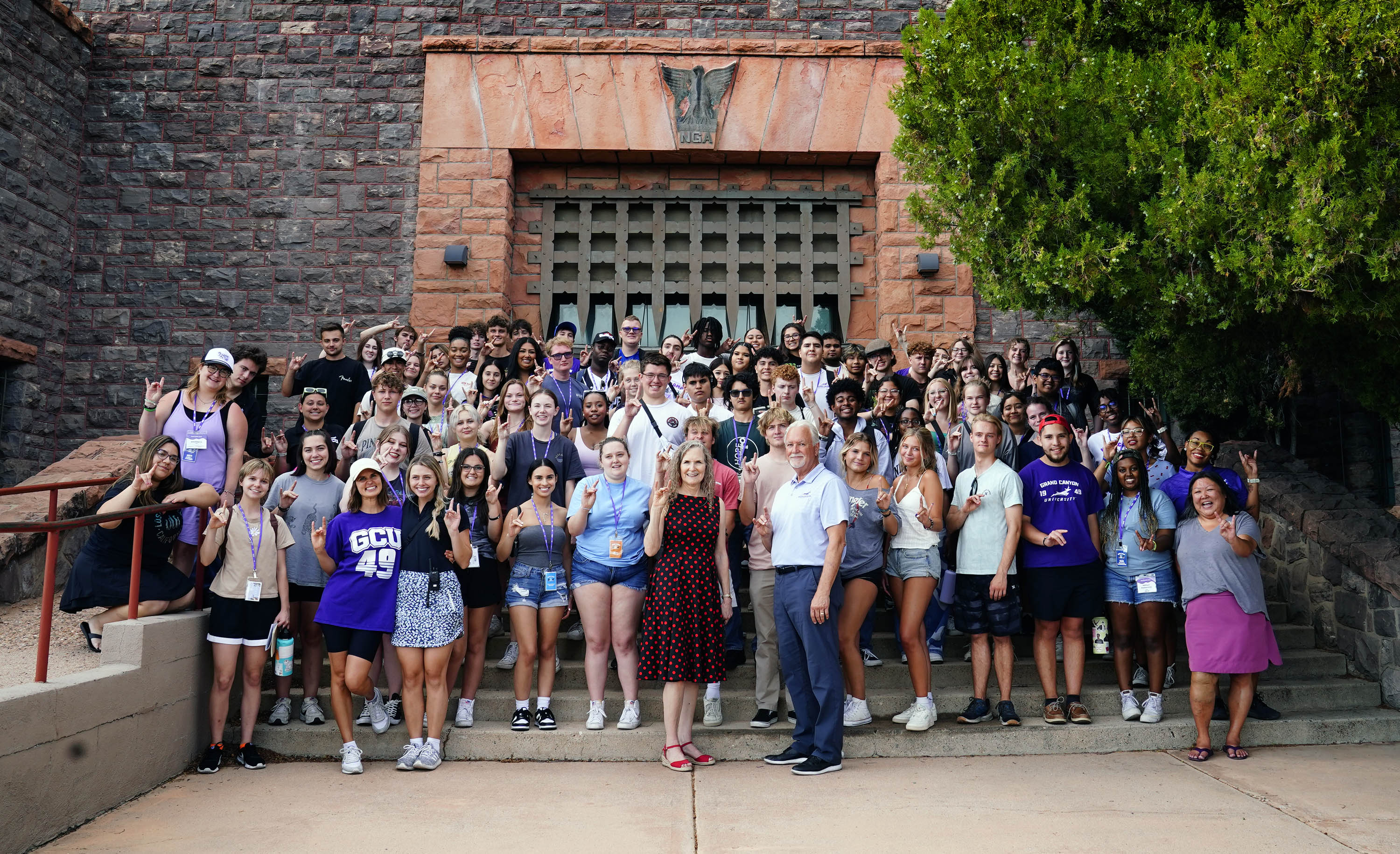
By Dr. Deb Wade
GCU Vice President, Counseling and Psychological Services
When I was a professor at the University of Missouri, one of the courses I taught to graduate-level psychology majors was “Addictions and Addictive Behaviors.” While at the time I was completely removed from the life experience of it, little did I know that our family would one day be personally touched by this condition.
This is not uncommon; most people will admit that they have been either directly or remotely affected by addictions. When this condition hits those you love, it can be heartbreaking, difficult, and physically and emotionally draining.
If you have been exposed in some way, you may have times of feeling completely hopeless and powerless over the impact, or you may feel angry and bitter about the toll it is taking on your sense of sanity.
What is an addiction? It is a condition where one engages in the use of a substance or in a behavior for which the seemingly rewarding effects provide a compelling incentive to repeatedly pursue the behavior despite detrimental and/or life-threatening consequences.
Substances (i.e., inhalants, opioids, nicotine, alcohol, cocaine) or behaviors (i.e., gambling, shopping, promiscuity) share a key neurobiological feature – they intensely activate the brain pathways of reward and reinforcement, many of which involve the neurotransmitter, dopamine.
As these pathways get deeper and deeper, the notion of “just quitting cold turkey” is nearly impossible. Family and friends of the addict often get frustrated and say, “Just decide!”
If only it were that easy. Addictions and/or addictive behaviors are not a matter of willpower; there is a giant grip on the person that cannot be overcome easily. To make matters worse, those who live with an addict will often experience a range of possible emotions: anger, despair, worry, grief, disgust, fear, frustration, embarrassment and a sense of powerlessness, to name a few.
To add insult to injury, because addiction affects the brain’s executive functions, individuals who develop an addiction may not even be aware that their behavior is causing problems for themselves or others.
There may be a lot of associated behaviors that can be just as troubling and difficult to weather for those who live with and love an addict: stealing, secrecy, lying, excuses and empty promises. This condition certainly can beat up a family system and pull the rug out from under sanity, empathy and understanding.
The good news is that recovery is possible! Whether the addict is finally sick of being sick or the family/loved ones of the addict have drawn a very strict line of no longer enabling the behavior, once the decision has been made, there are options.
Whether help comes from consistent counseling with a licensed professional who is knowledgeable in the area of addictions, from public group counseling settings (such as Alcoholics Anonymous, Narcotics Anonymous, Gamblers Anonymous, Sex Addicts Anonymous, etc.) or in a private in-patient treatment facility, recovery is possible.
It is important to note, however, that the road to recovery is seldom straight and without potholes and detours. Relapse, or the recurrence of substance use, is common – but NOT the end of the road!
And the good news is that for those who actually achieve remission of the condition for a period of five years, scientists acknowledge, the likelihood of relapse at that juncture is no greater than that among the general population.
If you are in the grips of an addiction, whether with a friend or with one you love, a couple of tips are in order:
- Remember the 3 “C’s”: You didn’t CAUSE the situation, you can’t CURE the situation and you cannot CHANGE the person! You see, often the addict will begin to blame you or you will begin to blame yourself. Please, please don’t! One more “C” – you are NEVER in CONTROL of the addict’s behavior! Don’t take on a responsibility over which you have NO power!
- Love him/her enough to NOT let them stay the same: Sometimes “tough love” is in order. By not being willing to cover for the addict’s behavior, for confronting behaviors that are not acceptable instead of explaining them away, and by choosing to set some strict standards of behavior for the way you are treated or your rules are followed, you are saying to the addict that you love, “I love you so much that allowing you to engage in these same behaviors without consequences is no longer tolerated.” You may feel like you are drawing some tough lines, but in reality, what you’re doing may save your addict’s life.
Addictions are destroying many people, or their presence in your loved one’s life may be destroying relationships. Be strong! Seek help for your addict … and if that is shunned, seek help for yourself! This battle CAN BE won!











